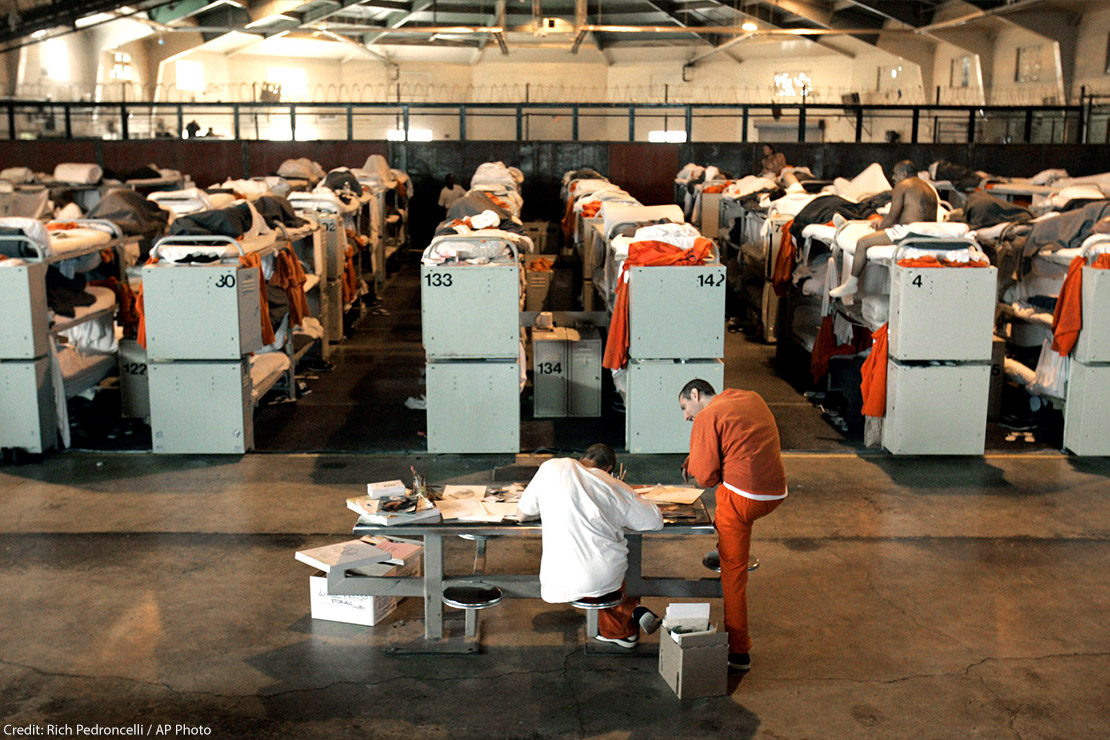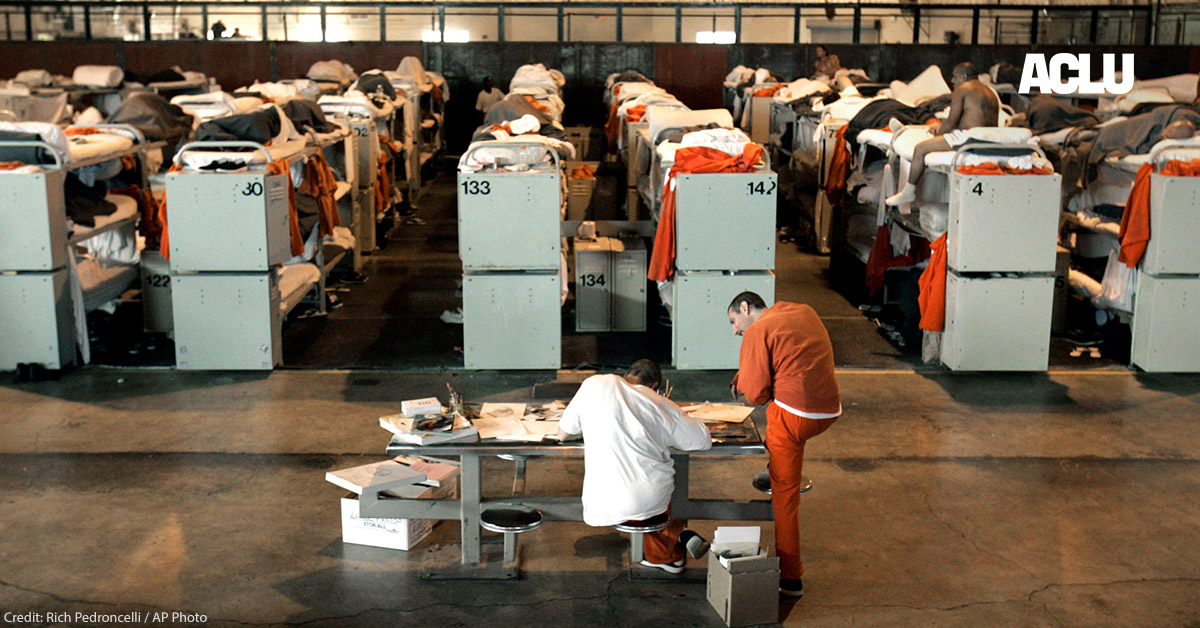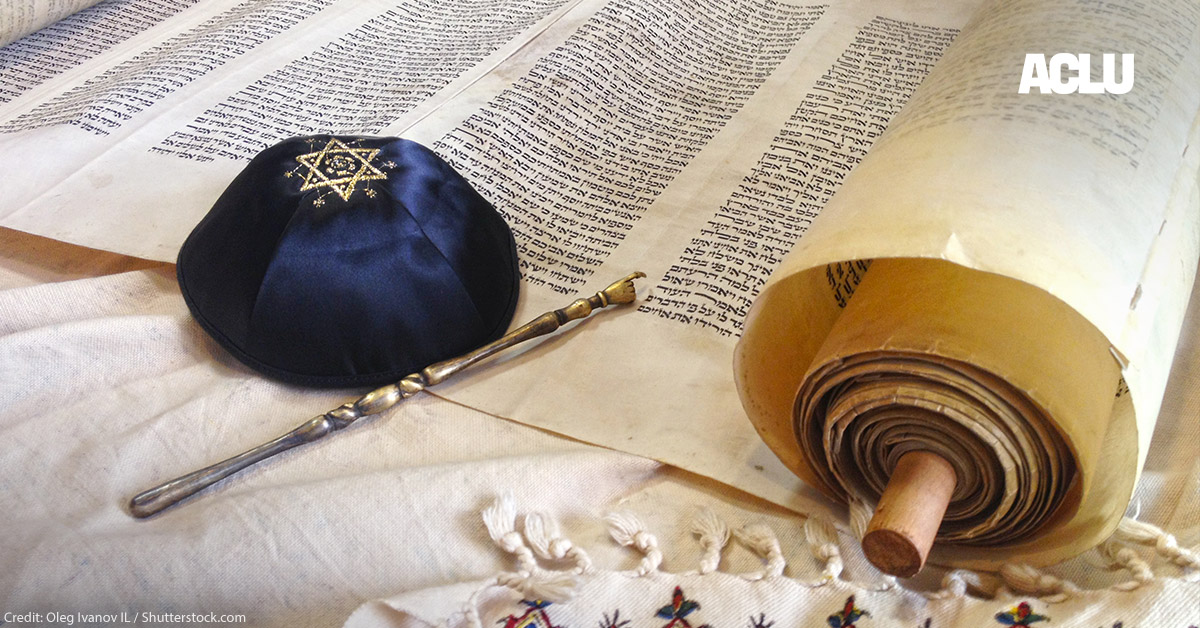This week, 25 years ago, Congress enacted a pair of laws that severely restricted the ability of incarcerated people to raise constitutional challenges against egregious conditions of their confinement, as well as unjust and wrongful convictions. In doing so, it furthered its ongoing project of reducing incarcerated people to second-class citizens. Over the last 25 years, this cruel pair of laws — the Prison Litigation Reform Act (PLRA) and the Antiterrorism and Effective Death Penalty Act (AEDPA) — have all but closed the federal courthouse doors to life and death lawsuits.
Let’s start with the PLRA. You or I can freely file a lawsuit against a neighbor who assaults us or a doctor who fails to detect or treat a cancer diagnosis, but the PLRA denies incarcerated people this right for similar violations. It builds a maze of procedural hurdles that effectively render an incarcerated person unable to challenge dangerous conditions of confinement. The PLRA is classic discrimination: It singles out one disfavored group of people and categorically denies them equal access to the courts.
One of the biggest obstacles under the PLRA is the requirement that, before they can go to federal court, an incarcerated person must first ask the prison or jail system — almost always the perpetrators of their problem — to fix it. They are required make this request using the precise words, phrases, and timing mandated by the system, and they must try every possible remedy provided by their jailer before they can file a lawsuit.
This is blandly called “exhaustion,” but in practice, a prisoners’ failure to dot every “i” and cross every “t” the jailer requires means their suit will be tossed. Exhaustion creates a perverse incentive for jails and prisons to create a Byzantine grievance process — one that becomes an unsurpassable barrier to justice. This is especially true for people who have learning, cognitive, or developmental disabilities, have mental illness, are not fluent in English, are segregated in solitary confinement, or for incarcerated children.
The result is antithetical to justice. In one instance, a 15-year old boy who was repeatedly raped and assaulted at a facility had his lawsuit dismissed for failure to exhaust the grievance process, despite his repeated complaints to staff while abuse was ongoing, and his mother’s repeated pleas to prison and court officials for protection for her child. The court held that the child needed to file his formal complaints within 48 hours of being assaulted and raped in order to have his case heard on the merits.
In addition to the exhaustion requirement, the PLRA requires that an incarcerated person be “physically” injured by the unlawful behavior. No matter how sadistic the mental or emotional injuries, the law bars any compensation absent physical injury. Applying this rule, federal courts have tossed lawsuits of incarcerated persons alleging abuse by staff, including when one group of people was “sexually battered … by sodomy,” and in another instance where a person alleged that a staff member reached between his legs and rubbed his genitals. The courts found that these claims failed because the persons had “only” suffered emotional injury and not physical injury.
The PLRA’s nefarious twin, AEDPA, passed in supposed response to the deadly, racist Oklahoma City bombing of 1995, has caused equally absurd and unjust outcomes. For example, Quintin Alonzo was 21 when he was arrested in Texas in 2001 for a murder he didn’t commit. Ten years later, the federal courts cited AEDPA in denying his claim that law enforcement hid evidence of his innocence at his trial. He then fought eight more years before a prosecutor in 2019 admitted that constitutional error infected his trial and that he was innocent, leaving Texas with no option but to release him.
Warren Hill wasn’t so fortunate. After the federal courts, citing AEDPA, turned away his constitutional claim that he could not be executed because every expert to have ever examined him believed he was intellectually disabled, the State of Georgia executed him. To explain how AEDPA facilitated these injustices, we need to explain the legal system before AEDPA’s birth.
For much of our nation’s history, people in state prisons whose convictions and sentences were tainted by violations of their federal constitutional rights could look to the federal courts and two pillars of the American justice system for redress. One pillar is the basic principle that federal courts have the authority — and the responsibility — to say what federal law is and when it has been violated. In other words, when it comes to federal law, federal judges call the balls and strikes. The second is the right to federal habeas corpus — lawyer speak for the right of an incarcerated person to go to federal court and demand release (or reprieve from a death sentence) if a federal judge determines that a state court conviction or sentence is unconstitutional.
For people in state prisons, federal habeas review is crucial. Appointed federal judges with lifetime tenures are much better positioned to police federal constitutional violations than state judges who must stand for election and have frequently done so on tough-on-crime platforms.
Then came AEDPA, which takes away the authority of federal judges to do these basic parts of their jobs. The law creates a maze of Kafkaesque procedures that create the danger of an incarcerated person’s petition being thrown out at every turn for a failure to follow even the most minute rule — regardless of whether their claims have merit. In those rare cases in which federal judges reach the constitutional claim, AEDPA says it doesn’t matter whether the judge believes federal law was violated. Rather, under AEDPA, relief may only be granted if the prisoner first made their claim in the state courts and, in turn, the state courts not only erred by failing to uphold the federal constitution, but also badly botched their review of a prisoner’s federal claim for relief.
Quintin Alonzo lost eight years of his life because he could not find his way through this statutory maze. Warren Hill lost his life altogether, because the Georgia courts were not wrong enough in denying his constitutional claim. That both of these men are Black should not surprise anyone — the racism inherent in the criminal legal system is part and parcel of its design and origin.
One of the original justifications provided on both sides of the political aisle for these laws was the need to stem the flood of allegedly frivolous lawsuits brought by incarcerated people to federal courts. The reality is that most cases filed by incarcerated people both before and after the PLRA and AEDPA raise serious issues, and courts are equipped to handle frivolous cases whether they are filed by incarcerated people or people in the community. Further, the barriers posed by these laws don’t just make it harder to file meritless lawsuits: They make it nearly impossible for any incarcerated person to meaningfully seek relief in federal court, no matter the validity of their claims.
As former Justice Anthony Kennedy famously observed: “Prisoners retain the essence of human dignity inherent in all persons.” Repealing and/or amending these deeply flawed laws is the least we can do to acknowledge the humanity of the people confined in jails and prisons across the land, and ensure they have access to justice.



